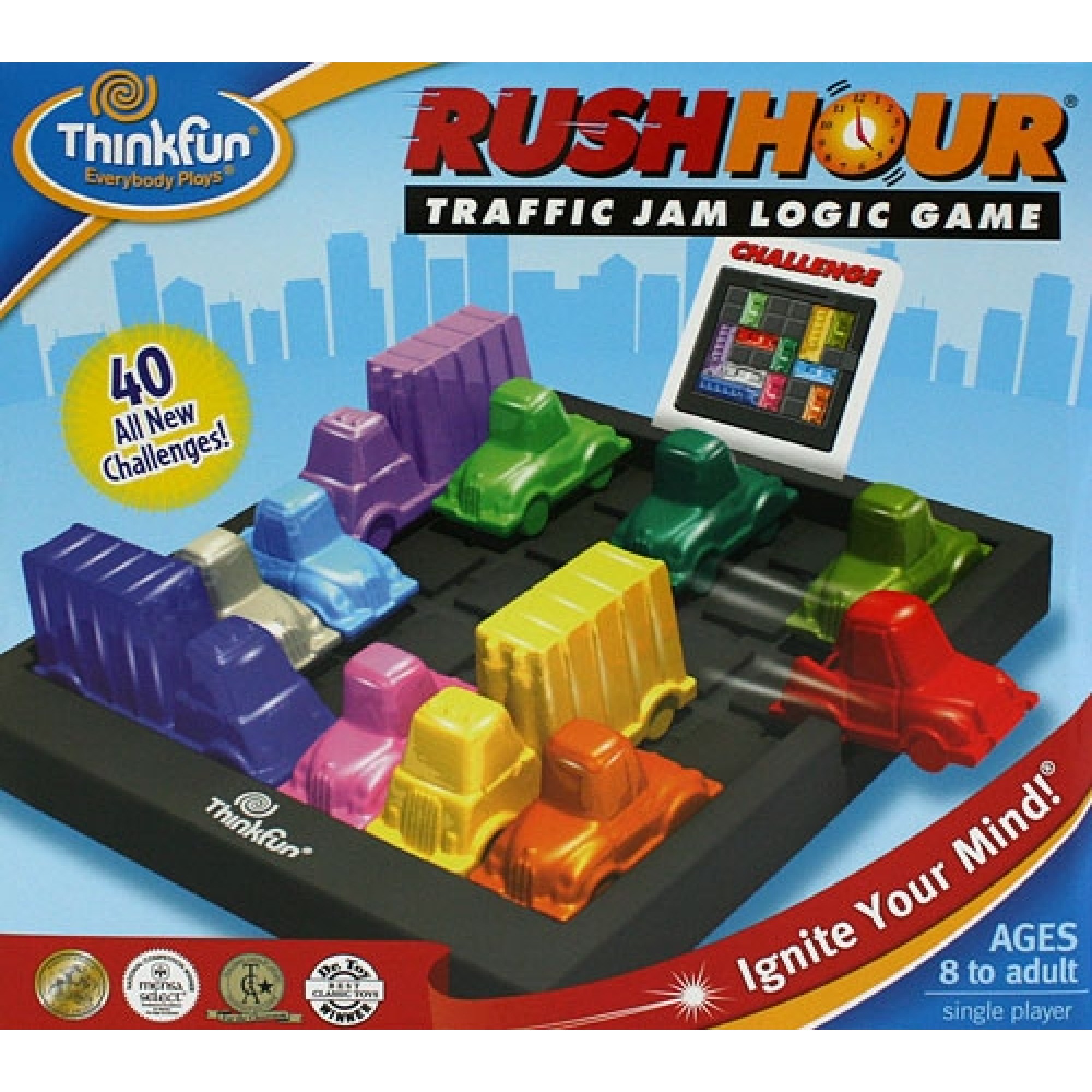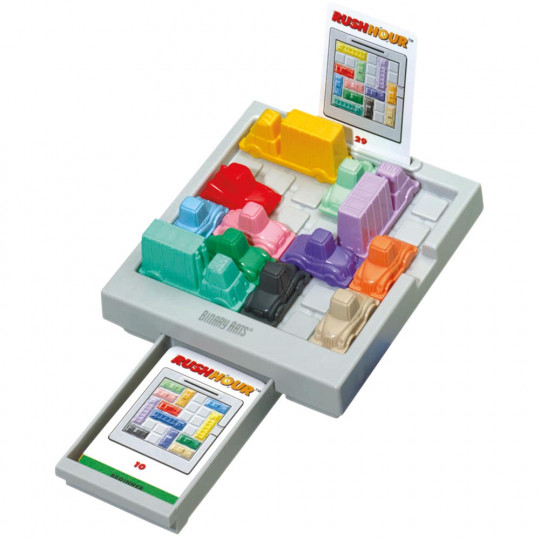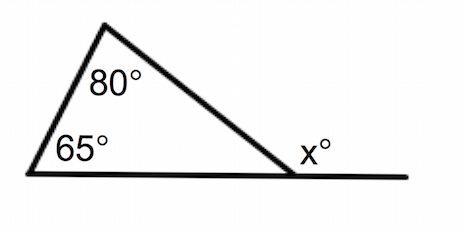Rush Hour and Rush Hour Jr.
Players: 1
Ages: 7 and up (5 and up for Rush Hour Jr.)
Purchase: Buy Rush Hour or Rush Hour Jr. on Amazon (affiliate links)
Math Ideas: Spatial reasoning, logical deduction
Questions to Ask:
If we want to move this car, what other cars do we need to move first?
Can you invent your own Rush Hour puzzle?
What makes a Rush Hour puzzle impossible?
During winter break, our family drove to Atlanta to visit some family and friends. I wanted to get a game that my son J could play in the car, so I picked up Rush Hour Jr. It's a lovely little solitaire logic game that travels easily in a car or on a plane.
How to Play
Rush Hour has a 6x6 board and a simple goal: move the cars so that the red car can escape the garage. Rush Hour Jr., which is the game I bought, changes the red car to an ice cream truck and includes simpler puzzles, but the games are otherwise the same. If you have a 5 or 6 year old, I'd recommend the Jr. version. Otherwise, I'd go straight for the main game.
As you can see, this simple game can get complicated in a hurry. In order to move the red car out through that gap on the right side of the board, we'll have to move that lavender 18-wheeler. But first we'll need to move the purple car, and to move that we'll need to move the orange car. Or should we move the pink one instead?
The game comes with a deck of cards that display puzzles of escalating difficulty. As I mentioned in my review of Equilibrio, the puzzles are chosen thoughtfully so that the player learns how the pieces move and can apply those strategies on the next puzzle. My son moved through the introductory puzzles and started getting really challenged around puzzle 8 or 9. Below you can see a video I took of J trying to solve puzzle 11 of 40. As the video starts, he has been at it for a few minutes already.
Where's the Math?
Rush Hour promotes the skill of logical deduction, where you start with a premise and draw a series of logical conclusions until you solve the problem. In this game, the starting premise is "I can move the ice cream truck out of this puzzle." If that statement is true, then what else must be true?
Think about how you might solve this problem at left.
"To move the white ice cream truck, I need to move the red fire truck down. But to do that, I need to move the other red truck to the right. That yellow bus is blocking it, though, so I'll need to move it up... although then it blocks the exit for the white car. Hmm..."
As you or your child thinks through this puzzle, you are deducing a set of moves that will help you reach your goal. You work backwards through the puzzle, trying to find that first move that unlocks all the others.
Now imagine you have to find the measure of angle x in my 8th grade math class. Your mental monologue might sound something like this:
"I don't know what angle x is, but I know it makes a straight line with that other angle, so those two angles add to 180 degrees. So if I can find that other angle, I can figure out angle x. And I also know that every triangle has three angles that add up to 180 degrees, and those two other angles add to 145..."
The content of the problem is completely different, but the logical structure is the same. You start with the goal in mind and work backwards until you find that first mathematical move that unlocks all the rest.
Questions to Ask
Rush Hour is a solitaire game, so I am perfectly happy to watch my son play with the game entirely on his own. At first, he started by shifting the cars around more or less at random, but as he played with the game longer he started developing strategies and moving the pieces more intentionally.
I usually don't ask J a question unless he seems frustrated. If that's the case, I'll use my questions to help lead him down that path of logical deduction. "So you want to move the green car. What cars are blocking it? How can we move those cars so we can shift the green car up?"
If you or your kids tire of the puzzles in the pack, you can make your own! Make your kid a puzzle and challenge them to solve it. Even better, ask them to make you a puzzle and see if you can solve it.
Since my son is basically a smaller me, he immediately made a puzzle that was impossible to solve, which he thought was verrrry funny. Even that moment became a great math conversation, however. I asked him "how can you tell whether a puzzle is impossible?" and we talked about formations that couldn't be navigated around.
Rush Hour is definitely a keeper. The pieces slide around in such a pleasing manner that your kids won't even realize they are becoming puzzle detectives. But don't worry, they're building mental muscles that are sure to pay off in later years of school.
Buy Rush Hour or Rush Hour Jr on Amazon (affiliate links)





